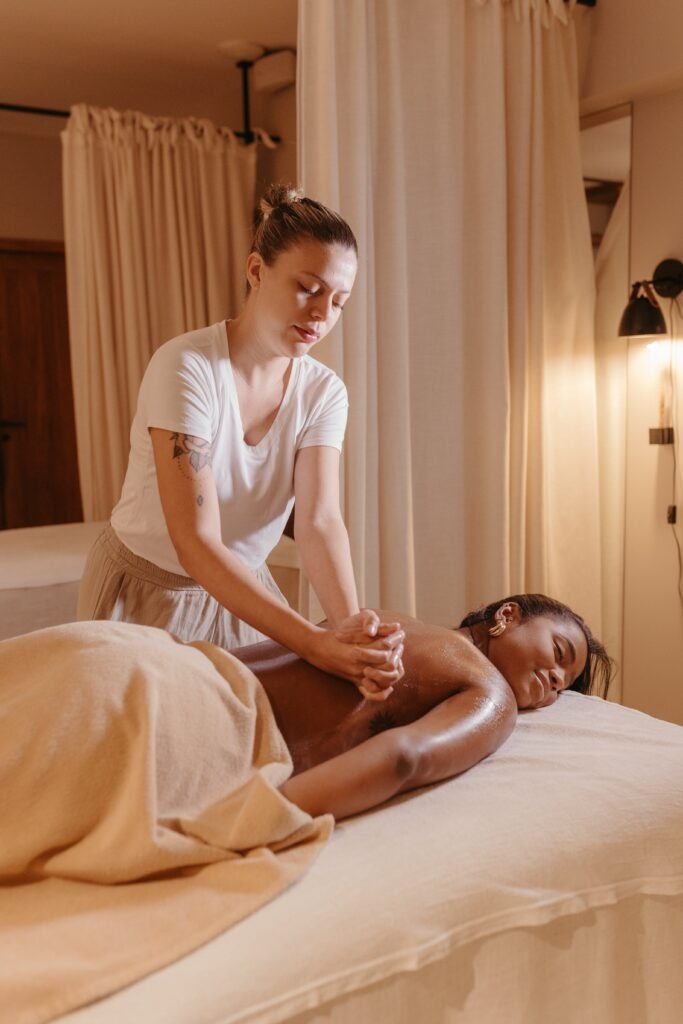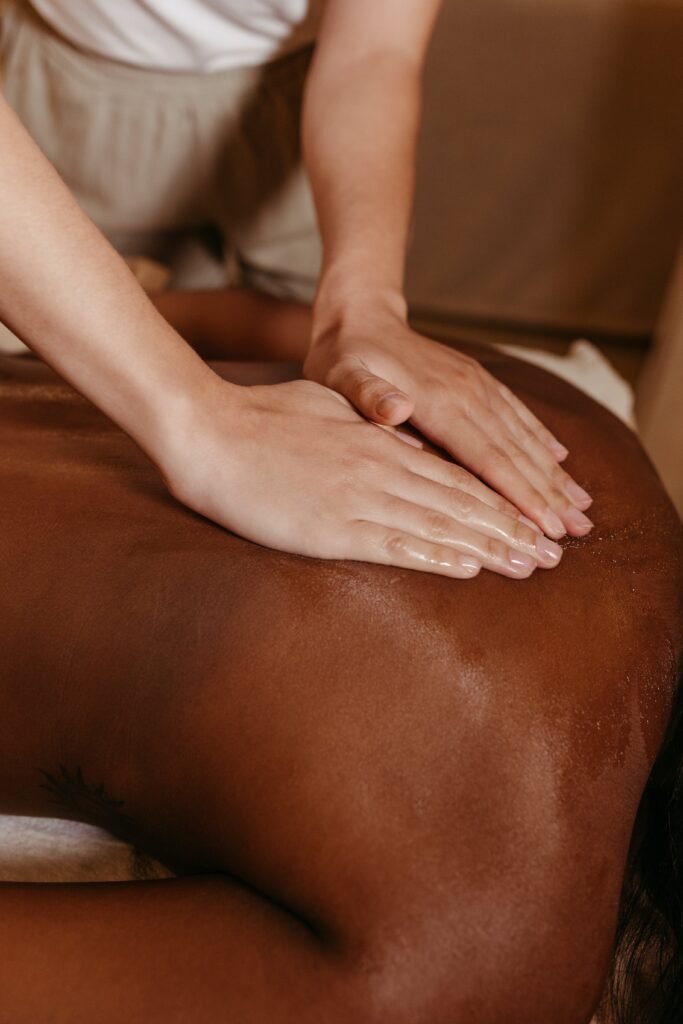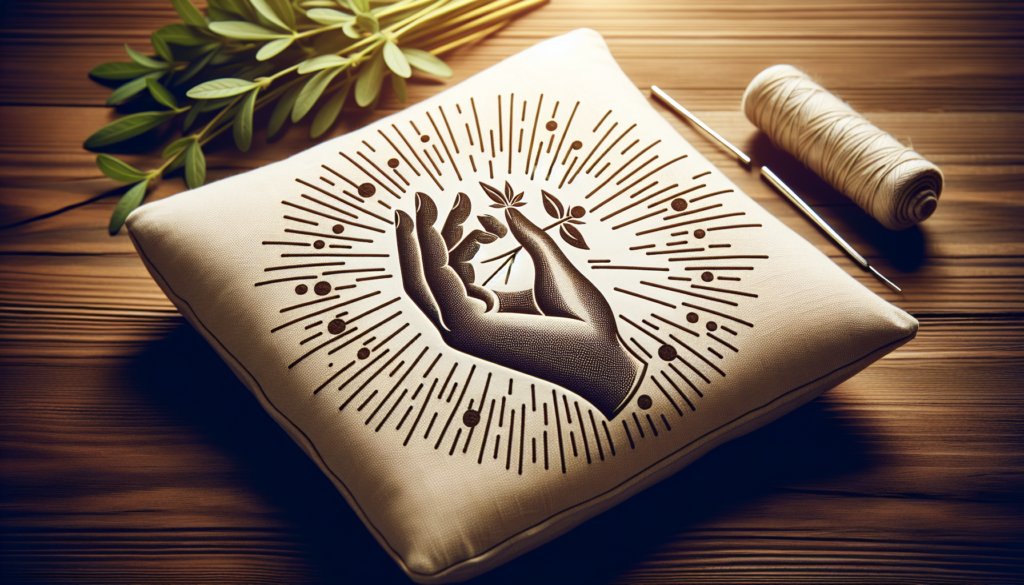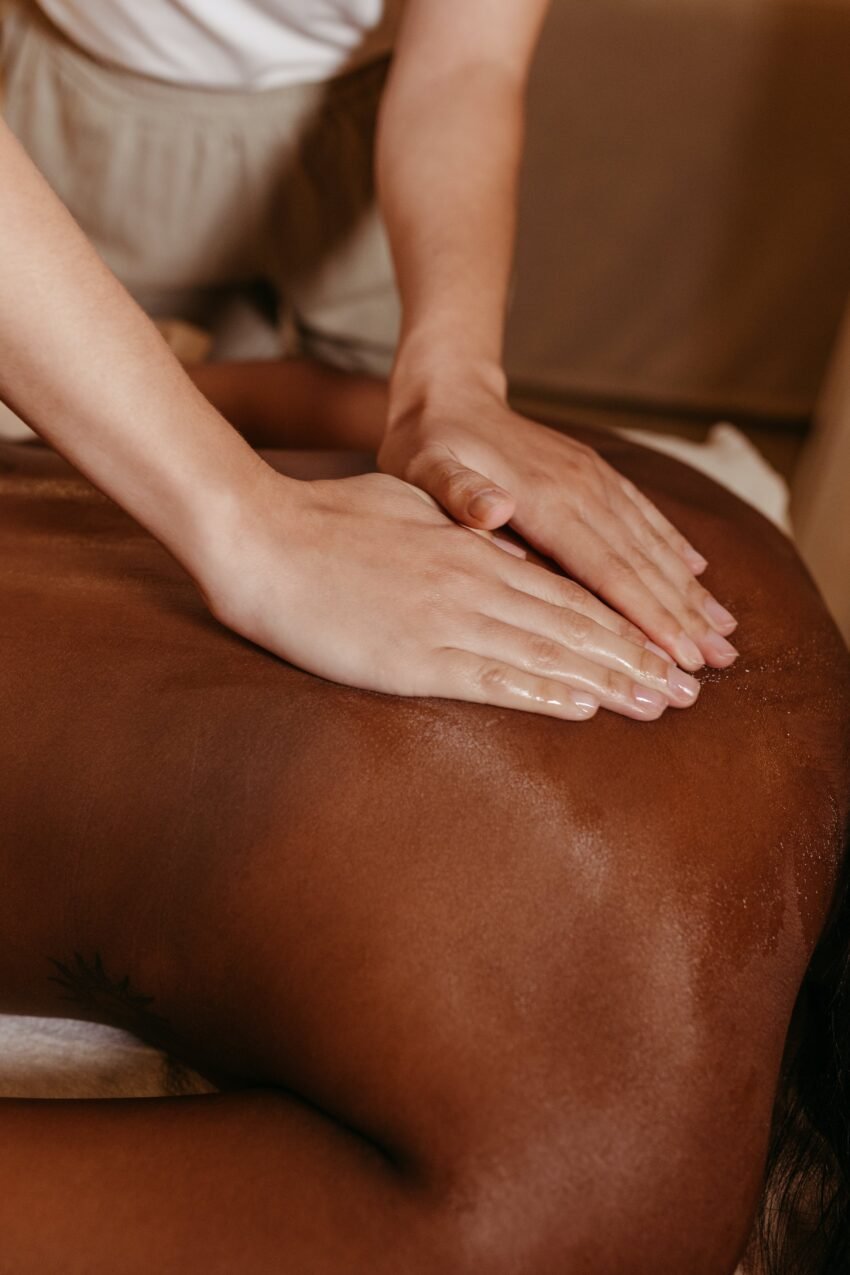If you’ve ever wondered whether alternative medicine can provide relief for stress and anxiety, you’re not alone. In today’s fast-paced and high-stress world, finding effective ways to manage these common mental health issues is a top priority for many. Alternative medicine, with its focus on holistic healing and natural remedies, has gained popularity as an alternative or complementary approach to traditional treatment methods. This article explores the potential benefits of alternative medicine in managing stress and anxiety, providing insights into various practices and techniques that may offer solace and tranquility in the midst of life’s challenges.
Understanding stress and anxiety
Stress and anxiety are common aspects of life that can have a profound impact on our mental and physical well-being. Both stress and anxiety are natural responses to challenging situations, but when they become excessive or prolonged, they can have detrimental effects on our overall health. Stress is the body’s reaction to external pressures, while anxiety is a feeling of fear, worry, or unease about an upcoming event or uncertain outcome.
The effects of stress and anxiety on mental and physical health
Stress and anxiety can negatively affect various aspects of our lives, including our mental and physical health. When experiencing chronic stress or anxiety, individuals may find it challenging to concentrate, leading to decreased productivity and impaired decision-making skills. Furthermore, these conditions can disrupt sleep patterns, leading to fatigue and a weakened immune system. Long-term stress and anxiety can also contribute to the development of other health issues such as high blood pressure, cardiovascular disease, and mental disorders like depression and panic disorders.
Common symptoms of stress and anxiety
Recognizing the symptoms of stress and anxiety is crucial for managing these conditions effectively. Some common signs of stress include restlessness, irritability, difficulty sleeping, headaches, muscle tension, and changes in appetite. Anxiety, on the other hand, may manifest as persistent worry, rapid heartbeat, shortness of breath, trembling, sweating, and a sense of impending doom. It is important to remember that these symptoms can vary from person to person, and individuals may experience a combination of both stress and anxiety symptoms.
Conventional methods of managing stress and anxiety
Traditional methods of managing stress and anxiety often involve pharmacological interventions, such as anti-anxiety medications or antidepressants. Additionally, cognitive-behavioral therapy (CBT) is commonly used to help individuals identify and modify negative thought patterns and behaviors that contribute to stress and anxiety. While these conventional approaches can be effective for many people, some individuals may seek alternative means of managing their stress and anxiety. Alternative medicine offers a holistic approach that aims to address the root causes of stress and anxiety, providing a different perspective and potential solutions.
What is alternative medicine?
Defining alternative medicine
Alternative medicine, also known as complementary or integrative medicine, encompasses a broad range of practices and treatments that are not considered conventional medical approaches. These practices often focus on treating the whole person rather than just the symptoms of a specific condition. Alternative medicine can include various therapies, techniques, and interventions that are rooted in ancient traditions and different cultural practices. It is important to note that alternative medicine should not be used as a replacement for conventional medical treatments but rather as a complementary approach.
Different types of alternative medicine
Alternative medicine comprises a diverse range of practices, each with its own unique principles and techniques. Some common types of alternative medicine include acupuncture, herbal remedies, massage therapy, meditation and mindfulness techniques, yoga and tai chi, aromatherapy, chiropractic care, hypnotherapy, and energy healing. Each of these practices offers a different approach to healing and managing stress and anxiety, allowing individuals to explore various options based on their preferences and needs.
Principles and beliefs behind alternative medicine
Alternative medicine is based on the principles of holistic and personalized care. The underlying belief is that optimal health is achieved by addressing the interconnectedness of the mind, body, and spirit. Alternative medicine practitioners emphasize the importance of treating the root causes of illness rather than just alleviating symptoms. They often emphasize self-care, natural remedies, and the promotion of overall well-being. Alternative medicine also recognizes the body’s innate ability to heal itself and aims to support and enhance this natural healing process.

Alternative medicine practices for stress and anxiety
Mind-body therapies
Mind-body therapies, such as meditation, mindfulness, and relaxation techniques, aim to promote a state of deep relaxation and calmness. These practices encourage individuals to focus their attention on the present moment, helping to reduce stress and anxiety. Meditation involves the practice of quieting the mind and focusing on a specific object, word, or breath. Mindfulness, on the other hand, involves intentionally paying attention to one’s thoughts, emotions, and sensations without judgment. These practices have shown promise in reducing stress, anxiety, and improving overall well-being.
Herbal remedies
Herbal remedies have been used for centuries to promote overall health and well-being. Certain herbs and botanical extracts have properties that can help alleviate stress and anxiety symptoms. For example, herbs such as chamomile, lavender, and valerian root are known for their calming and sedative properties. These natural remedies can be consumed as herbal teas, tinctures, or supplements. It is important to consult with a qualified herbalist or healthcare professional before incorporating herbal remedies into your stress and anxiety management plan to ensure safety and effectiveness.
Acupuncture
Acupuncture is a traditional Chinese medicine practice that involves the insertion of thin needles into specific points on the body to restore balance and promote healing. This ancient practice is believed to stimulate the flow of energy, known as qi, throughout the body. Acupuncture is thought to help reduce stress and anxiety by releasing endorphins, the body’s natural painkillers, and promoting relaxation. It is essential to seek treatment from a licensed and experienced acupuncturist to ensure safe and effective results.
Massage therapy
Massage therapy is a hands-on approach to relaxation and stress relief. By manipulating the body’s soft tissues, massage therapists can help reduce muscle tension, improve circulation, and promote a sense of relaxation. Various massage techniques, such as Swedish massage, deep tissue massage, and aromatherapy massage, can be used to target specific areas of tension and promote overall well-being. Massage therapy not only provides physical benefits but also offers a calming and nurturing environment for mental relaxation, making it an effective alternative medicine practice for managing stress and anxiety.
Meditation and mindfulness techniques
Meditation and mindfulness techniques have gained significant popularity in recent years for their ability to reduce stress and anxiety. These practices involve focusing attention, regulating breathing, and cultivating a non-judgmental awareness of one’s thoughts and emotions. Meditation and mindfulness can be practiced in various ways, such as guided meditation, body scan meditation, or walking meditation. Regular practice of these techniques can help individuals develop greater resilience to stress and anxiety, promoting a sense of inner peace and well-being.
Yoga and Tai Chi
Yoga and Tai Chi are ancient practices that combine physical postures, controlled breathing, and meditation to promote balance, flexibility, and mindfulness. These practices can help individuals alleviate stress and anxiety by releasing tension in the body, promoting relaxation, and calming the mind. Yoga includes a wide range of styles and intensities, allowing individuals to choose a practice that suits their preferences and physical abilities. Similarly, Tai Chi focuses on slow and deliberate movements that help individuals find balance and tranquility. Both yoga and Tai Chi offer gentle and low-impact exercise options while providing mental and emotional benefits.
Aromatherapy
Aromatherapy utilizes the therapeutic properties of essential oils derived from plants to promote relaxation, reduce stress, and improve well-being. Essential oils are commonly used in practices such as inhalation, topical application, or through the use of diffusers. Scents such as lavender, chamomile, or citrus can have uplifting or calming effects on the mind and body. Aromatherapy can be a convenient and pleasant way to incorporate alternative medicine into your stress and anxiety management routine.
Chiropractic care
Chiropractic care focuses on the musculoskeletal system and its impact on overall health. By adjusting and manipulating the spine and joints, chiropractors aim to remove any restrictions or misalignments that may cause stress or discomfort in the body. Chiropractic treatment can help alleviate physical symptoms associated with stress and anxiety, such as muscle tension and headaches. Additionally, chiropractors often offer advice on nutrition, exercise, and lifestyle changes to support overall well-being.
Hypnotherapy
Hypnotherapy is a complementary therapy that utilizes hypnosis to induce a relaxed state of consciousness. During a hypnotherapy session, a trained professional guides an individual into a deep state of relaxation, where they can access the subconscious mind and explore emotions and thought patterns. This therapy can help individuals uncover and address the underlying causes of stress and anxiety, promote self-reflection, and develop coping strategies. It is important to note that hypnotherapy should only be conducted by qualified and licensed professionals.
Energy healing
Energy healing encompasses various practices, such as Reiki, Qigong, and healing touch, which aim to balance and restore the body’s energy system. These practices are rooted in the belief that imbalances or blockages in the body’s energy pathways can lead to physical, mental, and emotional distress. Energy healers use various techniques, such as gentle touch or visualization, to help remove energetic blockages and promote the flow of vital energy throughout the body. These practices can help individuals achieve relaxation, reduce stress, and support overall well-being.
Scientific evidence and studies
Research on the effectiveness of alternative medicine for stress and anxiety
While alternative medicine practices for managing stress and anxiety have been widely used and reported by individuals, scientific evidence regarding their effectiveness varies. Many studies have shown promising results, suggesting that certain alternative medicine practices can reduce symptoms of stress and anxiety. For example, research has indicated that mindfulness-based stress reduction (MBSR) programs can significantly decrease stress levels and improve overall well-being. Similarly, studies on acupuncture have demonstrated its potential to reduce anxiety and promote relaxation. However, it is important to note that more robust scientific research is needed to investigate these practices fully.
Limitations and challenges of studying alternative medicine
Studying the effectiveness of alternative medicine practices presents unique challenges compared to conventional medical approaches. The holistic nature of alternative medicine makes it challenging to isolate specific variables for controlled clinical trials. Additionally, the placebo effect can play a substantial role in the perceived benefits of some alternative medicine practices. Research in this field often faces limitations in terms of sample size, study design, and funding. These challenges contribute to the lack of standardized research protocols and rigorous scientific evidence for many alternative medicine practices.
Promising results and cautious approaches
While some alternative medicine practices exhibit promising results in managing stress and anxiety, it is crucial to approach them with caution. It is advisable to consult with trained healthcare professionals and licensed practitioners to ensure safety and efficacy. Integrating alternative medicine practices into a comprehensive stress and anxiety management plan can provide individuals with additional tools and resources that complement conventional approaches. The key is to find a balance between evidence-based practices and personal preferences, with a focus on overall well-being.

Integrating alternative medicine with conventional approaches
Understanding the role of alternative medicine in a holistic approach
Integrating alternative medicine with conventional approaches to stress and anxiety management can offer individuals a comprehensive and holistic approach to their well-being. Conventional medicine often focuses on symptom management and pharmacological interventions, while alternative medicine emphasizes addressing the root causes and promoting overall health. By combining these two approaches, individuals can benefit from the advantages of both, effectively managing stress and anxiety from various perspectives.
Collaboration between alternative medicine practitioners and healthcare professionals
Collaboration between alternative medicine practitioners and healthcare professionals is essential for successful integration and patient care. Collaboration allows for comprehensive assessments of individuals’ health conditions and ensures that treatments are coordinated and safe. Healthcare professionals can provide valuable insights, medical knowledge, and evidence-based guidance, while alternative medicine practitioners contribute their specialized expertise and alternative perspectives. This collaborative approach enables individuals to receive the most suitable and balanced care for their stress and anxiety management.
Choosing the right combination of treatments
When considering alternative medicine for stress and anxiety management, it is important to choose the right combination of treatments that align with individual preferences and specific needs. Not all alternative medicine practices will work for everyone, and what may be effective for one individual might not yield the same results for another. It is advisable to explore different practices, consult with professionals, and listen to your body and intuition when selecting the most suitable combination of treatments. Personalizing your stress and anxiety management plan can enhance its effectiveness and overall satisfaction.
Safety precautions and potential risks
Understanding potential side effects or interactions
As with any form of treatment, alternative medicine practices for stress and anxiety management come with potential side effects or interactions. Herbal remedies, for example, may cause allergic reactions or interact with certain medications. It is important to thoroughly research the potential side effects and interactions of any alternative medicine practice or remedy before incorporating them into your routine. Additionally, it is crucial to inform your healthcare provider about any alternative medicine practices you are utilizing to ensure they are compatible with your overall care plan.
Consulting with trained and licensed practitioners
When seeking alternative medicine therapies, it is essential to consult with trained and licensed practitioners who have the appropriate qualifications and experience. Trained practitioners can provide accurate assessments, personalized care plans, and ensure that the practices are performed safely and effectively. It is advisable to research practitioners’ credentials, seek recommendations, and verify their qualifications before receiving any alternative medicine treatments.
Avoiding self-diagnosis and improper use of alternative remedies
While alternative medicine practices can be empowering, it is crucial to avoid self-diagnosis and improper use of alternative remedies. Self-diagnosis without the guidance of a qualified professional can lead to inaccurate assessments and potentially harmful consequences. It is important to seek appropriate professional advice and guidance to ensure that alternative remedies are used safely and effectively. By working with trained practitioners, individuals can receive accurate assessments and personalized care plans tailored to their unique circumstances.

Personal experiences and testimonials
Anecdotal evidence of alternative medicine’s impact on stress and anxiety
Many individuals have reported positive experiences and improvements in stress and anxiety management through the use of alternative medicine practices. Anecdotal evidence suggests that practices such as meditation, yoga, and acupuncture have helped individuals reduce their stress levels, manage anxiety symptoms, and improve their overall well-being. While personal experiences and testimonials can provide valuable insights, it is important to note that anecdotal evidence alone is not sufficient to establish the effectiveness of alternative medicine practices. Robust scientific research is required to validate these claims.
Considering individual variations and preferences
Alternative medicine practices for stress and anxiety management should be approached with an understanding of individual variations and preferences. What works for one person may not work for another, and it is essential to consider personal circumstances, beliefs, and comfort levels. Some individuals may find meditation and mindfulness techniques effective, while others may prefer acupuncture or herbal remedies. Flexibility and an open mind are crucial when exploring alternative medicine options, allowing individuals to find the practices that resonate most with their unique needs.
Cost and accessibility of alternative medicine
Comparing the expenses of alternative medicine with conventional treatments
Cost is an important consideration when exploring alternative medicine for stress and anxiety management. It is essential to compare the expenses of alternative medicine practices with conventional treatments to make informed decisions. Alternative medicine practices may vary in terms of costs, with some therapies requiring ongoing sessions or the purchase of supplements or essential oils. Conversely, conventional treatments often involve insurance co-pays, medication costs, or therapy fees. Considering personal financial circumstances and available resources can help individuals make financially responsible choices.
Insurance coverage and reimbursement
Insurance coverage for alternative medicine practices varies significantly depending on the insurance provider and policy. While some alternative medicine practices may be covered or partially reimbursed, others may not be included in insurance plans. It is advisable to review insurance policies carefully and contact insurance providers directly to determine coverage options for alternative medicine treatments. Additionally, some employers offer wellness programs that include alternative medicine services, so exploring workplace benefits is also worthwhile.
Availability of alternative medicine options
The availability of alternative medicine options may vary depending on geographical location and local resources. Larger cities often offer a wider range of alternative medicine practitioners and services, while rural areas may have limited options. It may be necessary to travel or seek virtual consultations to access specific alternative medicine treatments. Researching local resources, checking professional directories, and consulting with healthcare professionals can help individuals identify and access the alternative medicine options available to them.

Developing an alternative medicine plan
Finding suitable practitioners and services
When developing an alternative medicine plan for stress and anxiety management, it is essential to find suitable practitioners and services that align with individual needs and preferences. Researching practitioner qualifications, reading reviews, and seeking recommendations from trusted sources can help identify reputable and reliable practitioners. Additionally, exploring different services and therapies to find the ones that resonate most with personal preferences and comfort levels is important for establishing an effective alternative medicine plan.
Creating a personalized treatment regimen
Creating a personalized treatment regimen involves selecting specific alternative medicine practices, therapies, and techniques that complement individual preferences and needs. This may involve a combination of practices such as mindfulness meditation, acupuncture, and massage therapy. Establishing a routine and incorporating these practices into daily life can contribute to stress reduction and anxiety management. It is important to set realistic goals, establish a consistent practice, and modify the plan as needed based on individual progress and feedback from qualified professionals.
Monitoring progress and adapting the plan
Monitoring progress and adapting the alternative medicine plan is essential to ensure its effectiveness and address changing needs. Regularly assessing the impact of the chosen practices, noting any improvements or setbacks, and discussing progress with healthcare professionals and practitioners can facilitate necessary adjustments to the plan. The journey of stress and anxiety management is unique to each individual, and a flexible approach allows for ongoing optimization of the alternative medicine plan.
Conclusion
Alternative medicine practices offer diverse approaches to stress and anxiety management that can complement conventional approaches. Understanding stress and anxiety, their effects on mental and physical health, and common symptoms is crucial for implementing effective management strategies. Alternative medicine, with its broad range of practices rooted in ancient traditions, offers various therapies and techniques to address the multidimensional nature of stress and anxiety.
While anecdotal evidence and some scientific studies point to the potential benefits of alternative medicine for stress and anxiety management, more rigorous research is needed to establish their effectiveness fully. Integrating alternative medicine with conventional approaches allows individuals to harness the benefits of both and adopt a holistic approach to their well-being. Collaboration between alternative medicine practitioners and healthcare professionals promotes comprehensive care and safe practices.
Considering individual variations, safety precautions, personal experiences, and accessibility are vital for developing a personalized alternative medicine plan. By finding suitable practitioners, creating a tailored treatment regimen, and monitoring progress, individuals can optimize their stress and anxiety management. It is important to remember that alternative medicine should not replace conventional medical treatments, but rather enhance them, fostering a holistic approach to achieving overall well-being.
Encouraging further research and exploration of alternative medicine practices for stress and anxiety management is crucial. By supporting and expanding scientific studies, individuals, healthcare professionals, and researchers can continue to uncover the potential benefits of alternative medicine in this domain. Ultimately, a comprehensive understanding and integration of alternative medicine practices can contribute to more effective stress and anxiety management strategies.



